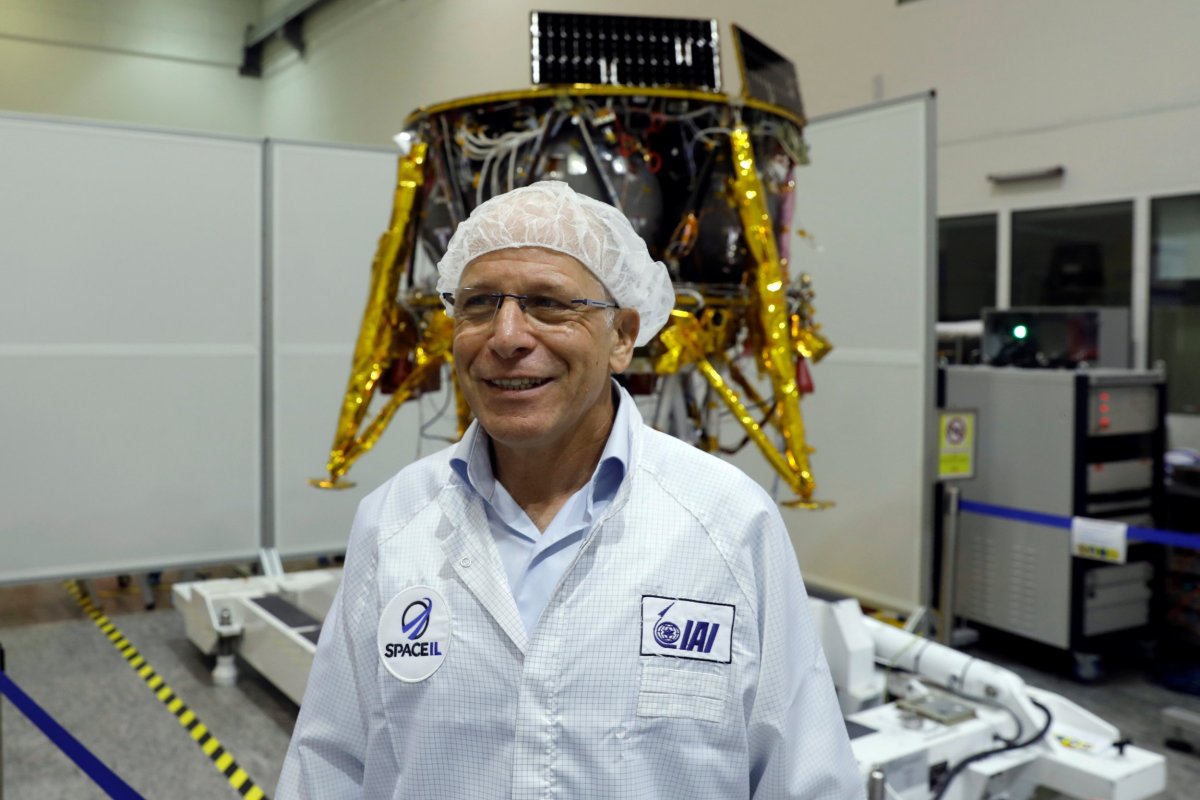Israeli nonprofit SpaceIL announced on Tuesday that it would land an unmanned spacecraft on the moon in February 2019.
Ido Anteby, CEO of the company, told a press conference in the Israeli city of Yehud that the probe would be launched from Cape Canaveral, Florida, aboard a SpaceX Falcon 9 rocket in December this year.
If successful, it will be the smallest probe to ever land on the moon, Anteby said, while also being the first privately funded unmanned spacecraft to achieve this goal.
It will also make Israel part of an exclusive club of just three countries—the United States, the Soviet Union and China—that have successfully completed a controlled landing on the moon's surface.
The spacecraft measures about 6.6 feet in diameter and stands around 5 feet high. At launch it will weigh roughly 1,300 pounds, although more than 880 pounds of that is fuel, which will be burned off before it reaches its final destination.
Once it touches down on the lunar surface, it will plant an Israeli flag and begin conducting research into the magnetic field of the Earth's only natural satellite.
The probe will move around via a "hopping" technique that will enable it to jump to other locations 1,640 feet away using a built-in propulsion system.
"As soon as the spacecraft reaches the landing point, it will be completely autonomous," Anteby said at the press conference, The Times of Israel reported. "The motor will brake the craft, and it will reach the ground at zero speed for a soft landing."
SpaceIL, in collaboration with the state-run Israel Aerospace Industries (IAI), began working on the spacecraft as part of the Google Lunar X PRIZE, which offered a total of $30 million in prizes to "challenge and inspire engineers, entrepreneurs and innovators from around the world to develop low-cost methods of robotic space exploration."
To win, a privately funded team had to be the first to successfully land a spacecraft on the moon's surface, travel 500 meters and transmit high-definition video and images back to Earth. However, Google announced in March that the competition had expired, with the $20 million grand prize remaining unclaimed.
But even though the contest was scrapped, SpaceIL and IAI continued to develop their spacecraft with the help of funding from private donors. In total, the project has cost around $95 million to date, with much of this covered by South African-born Israeli billionaire and entrepreneur Morris Kahn.

It is hoped that the mission will demonstrate that a spacecraft can be sent to the moon at low cost while inspiring scientific curiosity among young Israelis, much like the 1969 moon landing did in the United States.
"We're trying to replicate the Apollo effect in the U.S.," Kahn said, according to Agence France-Presse. "If we're going to continue being the startup country, we've got to get engineers."
Uncommon Knowledge
Newsweek is committed to challenging conventional wisdom and finding connections in the search for common ground.
Newsweek is committed to challenging conventional wisdom and finding connections in the search for common ground.
About the writer
Aristos is a Newsweek science reporter with the London, U.K., bureau. He reports on science and health topics, including; animal, ... Read more
To read how Newsweek uses AI as a newsroom tool, Click here.








